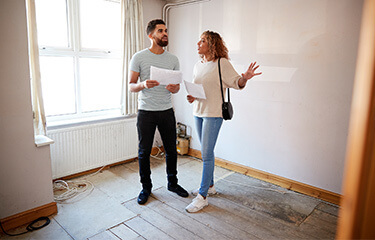What is stamp duty, and why do I need to pay it?
If you’re buying your first home or an investment property, stamp duty could be one of the bulkiest upfront costs you pay. That’s why it’s crucial to know what stamp duty is, how much you’ll need to pay, and when you need to pay it so you can adjust your loan budget accordingly. In this article, we will check out what this cost is.
What is Stamp Duty?
Stamp duty is a state tax on the sale of property from one owner to the next. This tax applies to a personal home, investment property, or vacant land. It can also apply to purchases like vehicles, but for the sake of this article, we’ll stick to home buying.
How Does Stamp Duty Differ from State to State?
Stamp duty is a state tax, meaning it changes depending on which state you purchase in, so the amount you pay and when you need to pay it can vary. Some of the factors that will affect how much stamp duty you have to pay include:
- Purchase price and location: The stamp duty amount is a percentage of the property purchase price, but this changes depending on the state or territory you purchase in.
- Type of property: Are you buying an existing residential home, an off-the-plan investment property, commercial property, or vacant land? Stamp duty is often calculated differently on each.
- Intended use: Will you live in the property or rent it out? Are you a first-home buyer or a seasoned investor?
If you want a rough estimate of what stamp duty looks like in your state for a first-home buyer, we’ve calculated the estimated amount on a $500K residential existing home.
| State | Owner-Occupied | Investment Property |
| NSW | $ 0 | $ 17,805 |
| VIC | $ 0 | $ 25,070 |
| QLD | $ 0 | $ 15,925 |
| WA | $ 13,433 | $ 17,765 |
| NT | $ 0 | $ 23,929 |
| ACT | $ 11,900 | $ 11,400 |
| TAS | $ 18,248 | $ 18,248 |
| SA | $ 21,300 | $ 21,330 |
Can I Add Stamp Duty to My Home Loan?
Unfortunately, stamp duty is an upfront cost you can’t add to your home loan balance. You might be able to use part of your deposit to pay for it, provided you still have enough remaining funds for your chosen property.
How Can I Reduce My Stamp Duty?
Stamp duty is one of the key sources of government tax revenue, so discounts can be hard to come by. However, there are a few exceptions to the rule which we outline below:
First Home Buyers
Most state and territory governments offer concessions for first-home buyers. Eligibility criteria and the type of concession will depend on which state you are purchasing in. For example, for purchases made after 1 July 2023, eligible first-home buyers in NSW may enjoy a complete stamp duty exemption for properties under $800K, with a concession on properties up to $ 1 million, as long as you live in the property for 12 continuous months, commencing no later than 12 months from settlement. Eligible first-home buyers in Victoria may receive an exemption on properties up to $600K, and a concession on properties up to $750K, as long as they live in the property for at least 12 months commencing no later than 12 months from settlement. (correct as of August 2023).
Off-the-Plan Properties
In NSW, first-home buyers going off the plan to purchase their residence can defer their stamp duty to 12 months after the contract exchange or the settlement date, whichever comes first. Investors must pay within the standard NSW time frame. In Victoria, stamp duty is usually calculated from the value of the land only and not the value of the building itself.
How do I calculate my stamp duty?
If you’re looking to buy a home or investment property, you can easily calculate your stamp duty costs with an online stamp duty calculator and factor it into your overall loan amount.



